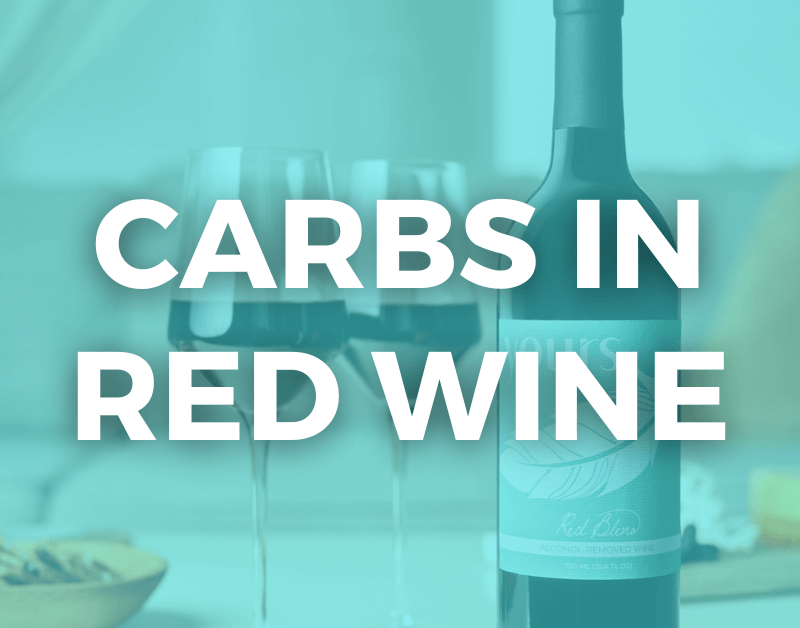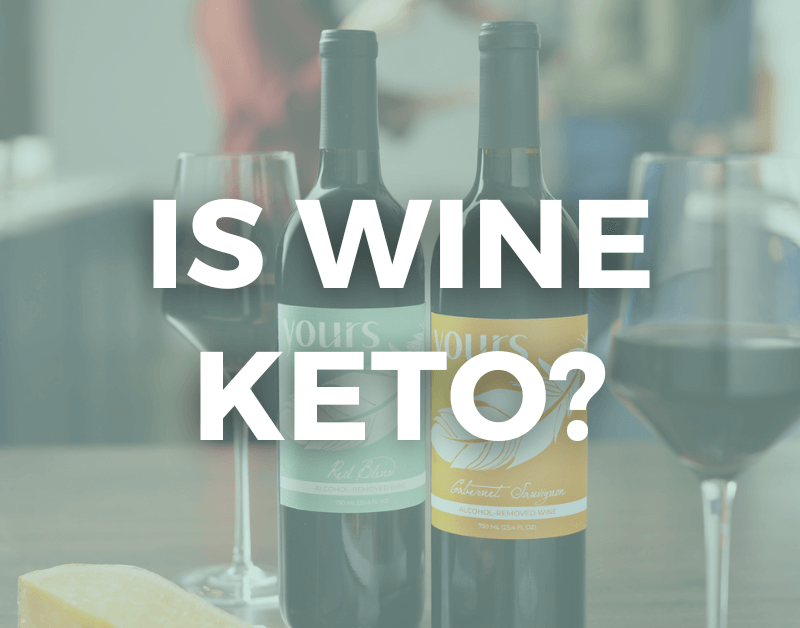How Many Carbs Are in Red Wine?

At any given time, there are an estimated 13 million Americans following a keto/low-carb diet. Which isn’t all that surprising, given the tremendous weight loss results many people have experienced when they ditch the carbs.
When you limit your dietary carbs, your body must look for other sources of energy. In this case, stored fat cells become its main fuel source, which is why many keto followers see such rapid weight loss from day one. And while carbs are undeniably delicious, there are millions of different keto-friendly food options that help dieters keep things interesting (and tasty).
But there’s one area where keto lovers always seem to struggle…
Alcohol.
We’ve talked a lot about how alcohol can hinder weight loss. A true empty calorie, alcohol provides no real energy, and often comes loaded with carbohydrates and sugar. A single rum and coke will run you 13g carbs, 13g sugar, and 179 calories. And many craft beers can run upwards of 200 calories and 20g carbs per bottle.
That said, those looking to drink alcohol on a low carb diet aren’t completely out of luck. There are several good low carb options to enjoy while dieting. One of the best?
Red Wine.
Not only is red wine delicious, but most varietals are extremely sensible when it comes to carbs and calories. Plus, wine is inherently meant to be sipped and enjoyed slowly, which is not always the case with beer and sugar-loaded cocktails. Of course, we’re not encouraging the consumption of alcohol. In fact, your diet would be supercharged if you found ways to swap-in low-carb non-alcoholic wine alternatives.
But if you are going to pour a glass and cheers to something special, here’s how many carbs you can expect to find in your red wine:
How Many Carbs in Red Wine?
Carbs in red wine vary by style and by pour. However, if you stick with a dry red wine and a standard 5 oz pour, you’ll find that most common red wines will hover around 4g carbohydrates per serving, making them one of the better options when it comes to consuming alcohol while on keto.
The real outlier with red wines is “sweet” wines. These wines tend to be labeled with names such as Dessert, Ice Wine, Dolce, and Sec. If you see any of these on the label, it’s best to put the bottle back where you found it, as the higher sugar content in these wines means the carb count is also going to be much higher.
Want to know exactly how many carbs your favorite red wine has? Here’s a breakdown of the most common types:
How Many Carbs in Pinot Noir?
A standard 5 oz pour of Pinot Noir is about 3.5 grams carbs. This makes it one of the lowest carb alcohol options available for those on a low-carb diet.
How Many Carbs in Shiraz/Syrah?
There are 4 grams of carbs in a glass of Shiraz and Syrah, making these two sister styles more great options for those on a low carb diet.
How Many Carbs in Malbec?
While Malbec tends to have a touch more sugar than some of the other red wines on this list, it still comes in at 4g of carbs per serving.
How Many Carbs in Cabernet Sauvignon?
Cabernet Sauvignon has one of the lowest sugar counts of any red wine. It also has just 4 grams of carbs per serving, making it a great option for keto followers.
How Many Carbs in Petit Sirah?
Though fruity and full-bodied, Petit Sirah is similar to most red wines, coming in at 4g carbs per glass.
How Many Carbs in Zinfandel?
There are just over 4g of carbs in a glass of Zinfandel, making it the most carb-rich of the standard red wines. However, if you stick with a standard pour and only enjoy a glass or two, the additional carbs are negligible compared to the other red wines on this list.
Low Carb Wines
In our blog about the Best Wines to Drink on Weight Watchers, we detailed some of the many “better for you” wine options on the market, including Skinny Girl and FitVine. While there are some of the best drink options when following a keto diet, it’s important to remember that alcohol and diet will always be a problematic combo. When able, it’s best to find some low-carb alcohol-alternatives to recreate the experience you love, but without the calories and carbs.
Weight loss journeys are never easy, but by being here and doing your research, you’ve already taken that crucial first step. Whatever you decide to drink, we raise our glass to you. Cheers!




